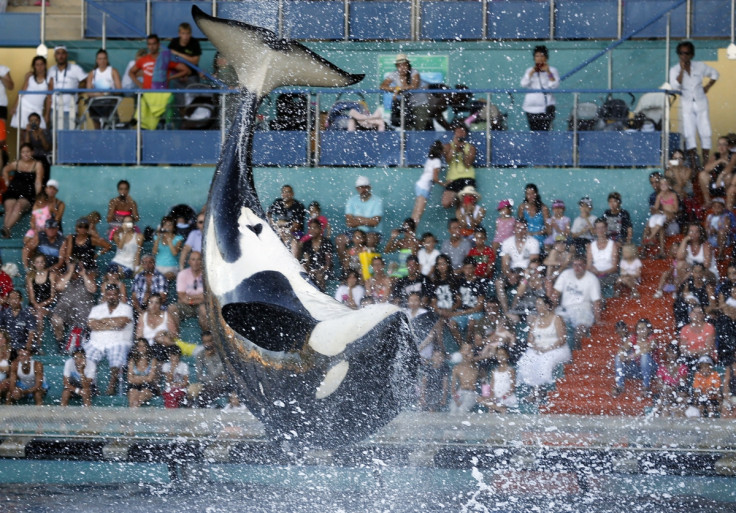SeaWorld to end killer whale live shows at San Diego park following mounting protests

SeaWorld is to phase out its trademark killer whale live shows at its park in San Diego in the wake of continuing protests at the treatment of the orcas. Chief executive Joel Manby announced the "theatrical killer whale experience" in the US state of California will end by 2017.
The decision arrives after SeaWorld has seen dwindling ticket sales ever since the release of the 2013 documentary Blackfish, which exposed the treatment of the animals in the theme park. The film focused of one orca, Tilikum, who was involved in the deaths of three people while being held in captivity, the last one involving a SeaWorld trainer, Dawn Brancaeu, at their Orlando resort.
Manby said the resort in San Diego will replace the live show, which sees the animals perform a series of tricks and stunts, with a new "orca experience focused on the natural environment [of the whales]".
SeaWorld have not announced whether they will be ending similar performances at their resorts in Florida or Texas, and has not given a specific time when they will cease in Florida.
The news was welcomed by California congressman Adam Schiff. He said: "The decision by SeaWorld to phase out killer whale shows in San Diego is a welcome step along the path towards ending the captivity of these magnificent creatures.
"Much more needs to be done, however, and I would urge the company to curtail the breeding of their orcas and partner in the creation of ocean sanctuaries. The fact still remains that as long as SeaWorld holds orcas in captivity, the physical and psychological problems associated with their captivity will persist."
Schiff previously announced that he will introduce the Orca Responsibility and Care Advancement (ORCA) Act. The legislation intends to phase out the captivity of orcas "so that their display ends with this generation".
He adds: "Specifically, it would prohibit the breeding, the 'taking' (wild capture), import or export of orcas for the purposes of public display. This legislation will allow for the orderly phasing out of the display of this species, giving orca-holding facilities time to transition to a more humane future."
SeaWorld dismissed parts of the 2013 documentary as inaccurate, pointing out they had not captured a whale in the wild to be used in their parks for more than 30 years as part of their "69 reasons you should not listen to Blackfish" plea to customers.
© Copyright IBTimes 2025. All rights reserved.






















